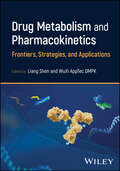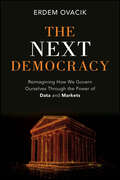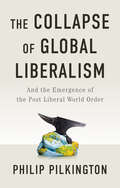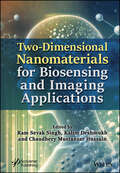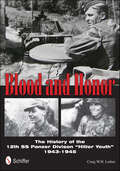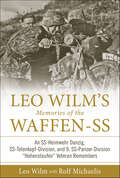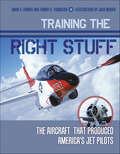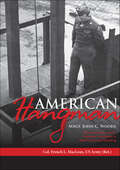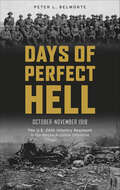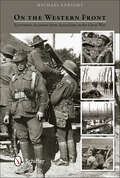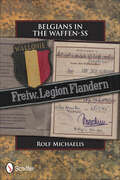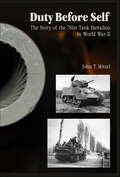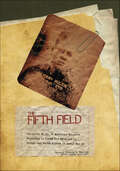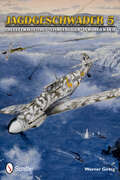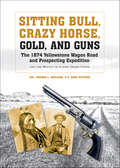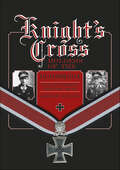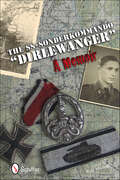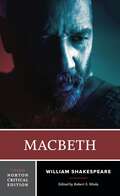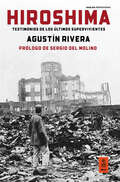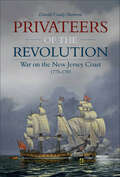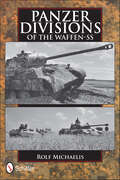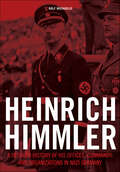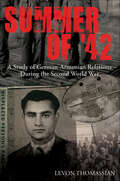- Table View
- List View
Drug Metabolism and Pharmacokinetics: Frontiers, Strategies, and Applications
by Liang Shen WuXi AppTec DmpkPractical, state-of-the-art pharmacokinetic research methods, ideas, advancements, applications, and strategies Drawing on a wealth of extensive practical experience and theoretical research, Drug Metabolism and Pharmacokinetics encapsulates the most recent advancements and illustrative applications in the field. Sixty-eight relatively independent yet interconnected articles are included, each offering a unique perspective and providing in-depth interpretation. Readers can either read systematically or select specific topics of interest from the table of contents. Basic concepts, frontier advancements, DMPK research strategies, and technical methods are covered for novel drug modalities and therapeutics in different disease areas. The book encompasses a wide range of application and validation cases for DMPK research, including studies in in vitro ADME, in vivo pharmacokinetics, metabolite profiling and identification, radiolabeled ADME, and bioanalysis. Case studies showing the application of topics covered are included throughout, along with valuable insights into problem-solving and critical thinking. Written by a team of scientists specializing in DMPK research from the DMPK Department of WuXi AppTec, Drug Metabolism and Pharmacokinetics discusses sample topics including: ADME properties, metabolite identification, and bioanalytical strategies for oligonucleotide drugsStrategies and challenges in the determination of drug-to-antibody ratio (DAR) values of antibody-drug conjugates (ADCs)Breaking barriers in CNS drug development with intrathecal and intracerebroventricular administrationApplication and detection techniques of biomarkers in drug developmentFlux dialysis method for assessing plasma protein binding of high protein-binding drugs Drug Metabolism and Pharmacokinetics is an essential forward-thinking reference on the subject for pharmacy students, pharmaceutical industry researchers, and DMPK scientists, especially those exploring novel drug modalities.
The Next Democracy: Reimagining How We Govern Ourselves Through the Power of Data and Markets
by Erdem OvacikExplore why we feel stuck with our democracies, and radical new visions for governing ourselves and the planet In The Next Democracy, social entrepreneur and Founder of Donkey Republic, Erdem Ovacik, delivers a startlingly insightful discussion of a new collective governance model based on markets and data that can improve our wellbeing as individuals, and as a society. The author explains how we can develop the next generation of government that is data-driven, iterative, transparent, and that we decentrally and directly make laws online using prediction markets and delegative voting. Using same principles of data and market, the author also explores delivery of public goods, where we link products and services' externalities to measurable metrics we care collectively care about altering business models, and removing the dichotomy consumerism and public service. You'll explore how we can assign real value to our public goods, changing the way we think about valuation and budgets for public spending. Filled with case studies, illustrations, new governance models and frameworks, and key takeaways and summaries of each chapter, you'll also find: A comprehensive explainer of the challenges caused by a collective inability to protect and deliver public goods Discussions of how to develop transparent, decentralized institutions that align private and collective interests to deliver public goods using markets and data An exploration of “Merit Democracy,” a radically new form of democracy Perfect for citizens who seek fresh visions for democracy, and young professionals and impact entrepreneurs who want to work towards creating impact. The Next Democracy is also a must-read for those who seek change through their investments to see the role they can play for a clear vision for a world we can all happily live in.
The Collapse of Global Liberalism: And the Emergence of the Post Liberal World Order
by Philip PilkingtonIn the 1990s, a vision emerged of a frictionless world of globalization in which the West would become ever richer on the basis of a tech-based service economy, all underpinned by a rules-based liberal international order. It became the basis for the mainstream politics of centre-left and right. Philip Pilkington argues that this vision was always delusional and is now dying. It is based on a doctrinaire and unrealistic form of liberalism and has given rise to hollowed-out financialised economies and disintegrating societies that can barely even reproduce their population or meet their energy needs. The US and UK find themselves ill-equipped to compete with China and other non-liberal states within an emerging post-liberal order in which what really matters is industrial capacity, realpolitik and military strength. Only by abandoning our liberal delusions and advancing our own brand of hard-headed post-liberalism can the West survive. No clear-sighted observer of contemporary geopolitics can afford to miss this bracing diagnosis of the West’s malaise and bold agenda for renewal.
Two-Dimensional Nanomaterials for Biosensing and Imaging Applications
by Chaudhery Mustansar Hussain Ram Sevak Singh Kalim DeshmukhThe book is essential for anyone eager to understand the transformative potential of 2D nanomaterials in biotechnology and medical science, offering in-depth insights into their unique properties, synthesis methods, and practical applications in an ever-evolving field. Nanotechnology is pivotal in advancing biotechnology and medical science. Nanomaterials, essential components of this technology, showcase unique and superior physicochemical properties when compared to their bulk equivalents. Since the groundbreaking discovery of graphene in 2004, two-dimensional (2D) nanomaterials have garnered immense attention for their potential in a wide range of applications across multiple industries including biochemistry, biophysics, and engineering. Two-Dimensional Nanomaterials for Biosensing and Imaging Applications examines the current state and new challenges associated with the development of 2D nanomaterials for biosensing and imaging applications. This volume focuses on the synthesis, processing methods, characterization, properties, and applications of 2D nanomaterials, their nanocomposites or heterostructures for biosensors and imaging devices, and the essential criteria in each specified field. Comparative performance evaluations of various biosensor devices and their advantages and disadvantages for the commercialization of 2D materials-based biosensors are comprehensively covered, giving essential insight into the challenges this technology presents. A handpicked selection of topics and expert contributors from across the globe will make this book an outstanding resource for students and industry professionals looking to explore the potential of these ground-breaking materials. Readers will find the book: Provides a comprehensive overview of the synthesis, processing, compositions, structure, device design, and various properties of two-dimensional nanomaterials for biosensing and imaging applications; Comprehensively covers 2D materials and their processing techniques, properties, and enhancement for biosensing and imaging applications Explores the coverage of biocompatibility, toxicity concerns, environmental and safety considerations, and legal and commercialization aspects of 2D nanomaterials for biosensing and imaging applications. Audience Graduate, postgraduate, and engineering students, research scholars, and faculty working in materials science, biotechnology, biomedical engineering, biochemistry, and biophysics, as well as material engineers, scientists, and technologists in the electronic, electrical, and biomedical industries.
Blood and Honor: The History of the 12th SS Panzer Division "Hitler Youth" 1943–1945
by Craig W.H. LutherNew edition of the definitive 12th SS history
Leo Wilm's Memories of the Waffen-SS: An SS-Heimwehr Danzig, SS-Totenkopf-Division, and 9. SS-Panzer-Division “Hohenstaufen” Veteran Remembers
by Rolf Michaelis Leo WilmA firsthand account of Leo Wilm&’s six years at war in the Waffen-SS
Training the Right Stuff: The Aircraft That Produced America's Jet Pilots
by Mark A. Frankel Tommy H. ThomasonA comprehensive study of postwar training aircraft that produced a new generation of jet pilots
American Hangman: MSgt. John C. Woods: The United States Army’s Notorious Executioner in World War II and Nürnberg
by French L. MacLeanThe first biography of MSgt. John C. Woods, infamous US Army hangman of the Nuremberg trials MacLean meticulously separates fact from the mythology surrounding this enigmatic figure This is a follow-on book to The Fifth Field, winner of the 2013 Richard G. Trefry Award from the Army Historical Foundation
Flyers Far Away: Australian Aircrews over Europe in World War II
by Michael EnrightFirst one-volume history covering Australian airmen in World War II
Days of Perfect Hell: The U.S. 26th Infantry Regiment in the Meuse-Argonne Offensive, October-November 1918
by Peter L. BelmonteCovers the day-to-day progress of the 26th Infantry Regiment during the Meuse-Argonne Offensive in WWI
On the Western Front: Eyewitness Accounts from Australians in the Great War
by Michael EnrightHow Australian civilians came to the Western Front and why, in their own words
Belgians in the Waffen-SS
by Rolf MichaelisIn the years between 1940 and 1945, a total of approximately 12,500 Belgians served in the Waffen-SS, a number roughly equal to the strength of an infantry division in 1944. Because of political and social problems and different objectives of the volunteers, however, the men were not combined in a single unit, rather they were deployed in three different formations. This book describes the major units of the Waffen-SS in which the Belgian volunteers were concentrated, where they were deployed, and the battles they took part in. It also explains the reasons why the men served in three different Waffen-SS divisions.
Duty Before Self: The Story of the 781st Tank Battalion in World War II
by John T. MitzelIn January 1943, and as World War II entered its second year it was evident that U.S. tanks were outgunned, under-armored, and underpowered. In short, they weren't cutting the mustard, but there was no time for a long development project. At Fort Knox, Kentucky, the newly-formed 781st Tank Battalion was detailed to run an around-the-clock marathon comparison test on forty Sherman tanks to find the best available configuration and fastest solution. When the results of the "Million Dollar Tank Test" were collected, what resulted was the Sherman "Easy Eight," an easier to manufacture tank that was also such an effective fighting vehicle that it would serve for another thirty years. The 781st Tank Battalion shipped out to Europe, where, equipped with the "Easy Eight," it thwarted Hitler’s last major offensive in the West – Operation Nordwind – and swept southern Germany as the tip of the U.S. Seventh Army’s sword.
The Fifth Field: The Story of the 96 American Soldiers Sentenced to Death and Executed in Europe and North Africa in World War II
by French L. MacLeanUnnamed Graves, a Secret Cemetery, Files Closed to the Public and Stored in "The Vault." During World War II, in the North African/Mediterranean and European Theaters of Operation, 96 American soldiers were convicted by Army General Courts-Martial and executed for desertion, murder and rape. Their victims were 26 fellow American soldiers and 71 British, French, Italian, Polish and Algerian civilians. The executions were not ad hoc killings. General Eisenhower, or another theater commander, approved every proceeding, but the Army did not trumpet the crimes. After the war, the Army searched for a suitable site to inter the remains of all 96 men. It chose a plot of land adjacent to – but technically outside of – the World War I American cemetery of Oise-Aisne. The area is separated from the main cemetery by a high stone wall, concealed from view, and is closed to casual visitors. Called "Plot E" by the staff, others refer to it as "The Fifth Field." The judicial files on the 96 were even harder to find – until now.
Jagdgeschwader 5: The Luftwaffe’s JG 5 “Eismeerjäger” in World War II
by Werner GirbigFirst English language edition of the definitive JG 5 history
Sitting Bull, Crazy Horse, Gold And Guns: The 1874 Yellowstone Wagon Road and Prospecting Expedition and the Battle of Lodge Grass Creek
by French L. MacLeanThe expedition was hoping to find the Lost Cabin Gold Mine; instead, they found Sitting Bull and his warriors
Knight's Cross Holders of the Fallschirmjager: Hitler’s Elite Parachute Force at War, 1940-1945
by Jeremy DixonMini-biographies of the 130 Knight&’s Cross Holders of the Fallschirmjäger, Hitler&’s elite paratroopers
The SS-Sonderkommando "Dirlewanger": A Memoir
by Rolf MichaelisA rare look inside the Sonderkommando "Dirlewanger," the SS anti-partisan unit notorious for atrocities in Poland and Russia during World War II. These memoirs were written by a former member of the unit from its formation in 1940 to the end of the war and took part in nearly all its operations. A first hand account of the brutal and barbaric methods used by Dirlewanger against partisans – methods that appalled even some SS commanders – are revealed here in this memoir. SS-Sonderkommando "Dirlewanger" was originally manned by convicted poachers, however as the war progressed replacements were found by emptying prisons and filling the ranks with more hardened criminals. Here are the chilling recollections of a soldier in the SS-Sonderkommando "Dirlewanger" during the Polish and Russian campaigns, the 1944 Warsaw uprising and the final battles near Berlin.
Macbeth: A Norton Critical Edition (Norton Critical Editions)
by William Shakespeare“With clear and engaging explanation, Professor Miola offers a general introduction to the play, as well as commentary from well-known actors who have played its major roles from the mid-eighteenth century on and material on critical debates. Rather than take single viewpoints on such topics as witchcraft, tyrannicide, equivocation, and the union of Scotland and England, he presents each issue as a debate, open to fruitful discussion among students and colleagues.”—CYNTHIA LEWIS, Davidson College “Framing this devastating play with illuminating readings, this wonderful edition offers readers a vivid introduction to the Macbeths’ blood-steeped world.”—TANYA POLLARD, City University of New York University This Norton Critical Edition includes: The First Folio (1623) text of Macbeth, with updated and expanded footnotes and introductory materials by Robert S. Miola. Illustrations from a wide range of adaptations, including modern stage and film productions. “The Actors’ Gallery,” collecting reflections from actors and actresses about their roles in major productions of Macbeth from the eighteenth to twenty-first centuries. Sources and contexts highlighting early texts that influenced Shakespeare and that range in topics from witchcraft to regicide, with a brand-new category on the union of Scotland and England. Nine selections—four new to the Third Edition—of literary and theatrical criticism. A revised “Afterlives” section, featuring four examples of how Macbeth continues to be reimagined beyond the Folio. An annotated list of online and print resources.
Hiroshima: Testimonios de los últimos supervivientes
by Agustín RiveraUna crónica de los hibakusha, los supervivientes de las bombas atómicas de Hiroshima y Nagasaki, dos de los acontecimientos más impactantes del siglo XX. En Hiroshima, la angustia de los afectados se mezcla con la compasión, y cierta dosis de ternura, para componer el relato de sus vidas en las dos ciudades japonesas, convertidas en símbolos de paz; justo cuando regresa el miedo global a las armas nucleares. A través de entrevistas, Agustín Rivera recoge las voces, en primera persona, de las víctimas de una tragedia que marcó su existencia para siempre: el dolor, las secuelas e incluso el sentimiento de culpa por no haber podido ayudar a otros afectados en peor situación. El libro narra además la experiencia del autor como reportero de Diario 16, El Mundo y El Confidencial en las coberturas periodísticas en Hiroshima y Nagasaki en 1995, 2001 y 2012. Una obra para descubrir el ruido eterno de los muertos y la capacidad de superación, sin olvidar que somos memoria.
Privateers of the Revolution: War on the New Jersey Coast, 1775-1783
by Donald Grady ShometteA narrative of the forgotten privateering war on the Jersey coast during the American Revolution
Panzer Divisions of the Waffen-SS
by Rolf MichaelisA detailed history of all seven Waffen-SS panzer divisions in World War II: 1.SS-Panzer-Division "Lebstandarte Adolf Hitler"; 2.SS-Panzer-Division "Das Reich"; 3.SS-Panzer-Division "Totenkopf"; 5.SS-Panzer-Division "Wiking"; 9.SS-Panzer-Division "Hohenstaufen"; 10.SS-Panzer-Division "Frundsberg"; 12.SS-Panzer-Division "Hitlerjugend." Each unit is presented in detailed history from its formation, combat operations throughout the war, and final disposition at war's end. Rare images – most never before published, including soldbuchs and award documents – and personal veteran accounts are featured along with equipment, commanders, maps, and charts.
Heinrich Himmler: A Detailed History of His Offices, Commands, and Organizations in Nazi Germany
by Rolf MichaelisAll of Heinrich Himmler&’s roles and official positions are described in detail
Waffen-SS Knights and Their Battles: The Waffen-SS Knight’s Cross Holders Vol.1: 1939-1942
by Peter MooneyFourth volume in series Covers Knight's Cross recipients January to May 1944
Summer of '42: A Study of German-Armenian Relations During the Second World War
by Levon ThomassianDespite the overwhelming contributions made by the Armenians to the Allied war effort, it is widely unknown that at least 18,000 served under the Third Reich. After the war, these so-called collaborators were chastised and indiscriminately labeled as traitors by those unable to grasp the complexity of their circumstances. Largely based on archival research, German-Armenian Relations in the Second World War attempts to separate fact from fallacy by examining the complex motives, treatment, and history of these Armenians.
